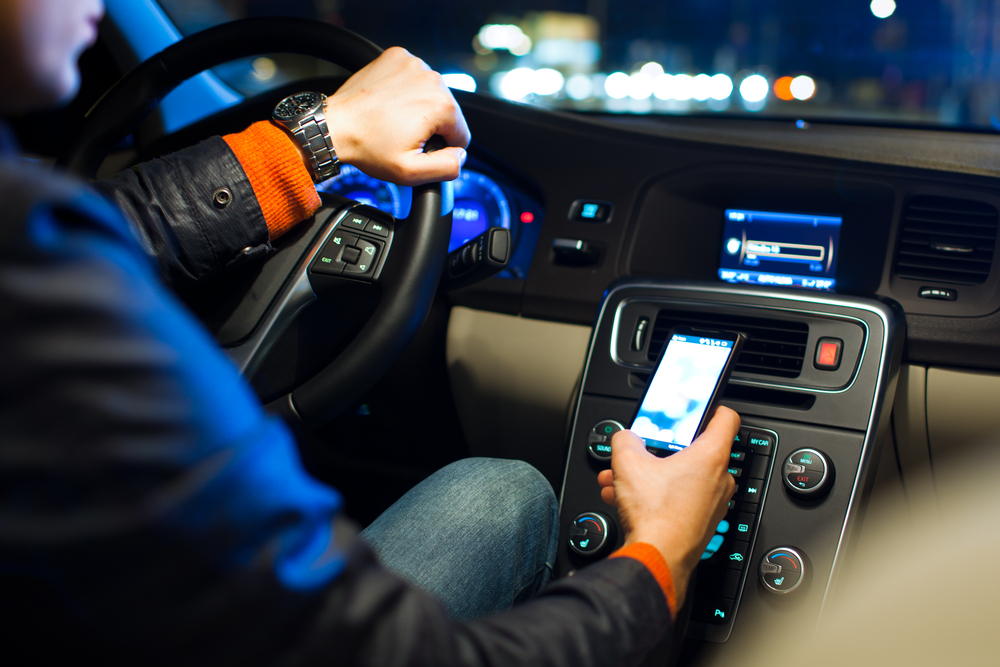Cell phones have changed the way we communicate, and technology has evolved to allow us to talk, text and post to social media while driving without touching our phones. Or has it?
Two new studies from the AAA Foundation for Traffic Safety and the University of Utah have found that hands-free, voice-activated infotainment systems in cars can still be distracting to drivers. The systems, which enable drivers to change radio stations, make phone calls and send text messages are supposed to allow drivers to keep their hands on the wheel and their eyes are on the road. Instead, many of them are so error-prone that they require even greater concentration from the driver, not less.
David Strayer, a psychology professor at the University of Utah and the study leader, stresses that driving should always be a driver's primary focus and that things that take attention away from this task endanger everyone.
One study looked at the infotainment systems from several popular car manufacturers: Chevrolet's MyLink system, Mercedes' COMMAND system, MyFord Touch, Chrysler's UConnect, Toyota's Entune, and Hyundai's Blue Link Telematics System. Chevrolet's system was the most distracting, followed by Mercedes and Ford. Toyota, Hyundai and Chrysler scored the best.
The study rated activities that a driver would normally do in a vehicle from the least distracting to the most distracting. Listening to the radio or books on tape were the least distracting. Using a hands-free cell phone, talking to a passenger and talking on a hand-held cell phone were more distracting, and using a vehicle's speech-to-text system to create text messages and emails was by far the most distracting.
The study found that the accuracy of the voice recognition systems had a direct correlation to the rate of distraction. Systems with more accurate recognition were less distracting to drivers. Composing messages was also more distracting than listening to them.

A second study assessed Apple's Siri (version iOS 7) using the same metrics as the infotainment study and found a relatively high rate of mental distraction. "Technologies used in the car that rely on voice communications may have unintended consequences that adversely affect road safety," said Peter Kissinger, president and CEO of the AAA Foundation for Traffic Safety in a press release. "The level of distraction and the impact on safety can vary tremendously based on the task or the system the driver is using."
Researchers tested the systems with 162 university students and other volunteers who drove in three different settings: a laboratory, a driving simulator and in a neighborhood in Salt Lake City. Both studies had drivers perform "real world" activities such as changing radio stations and voice dialing. Simple commands like turning on the radio, changing the station, reading emails and texts were the least distracting. Using the voice menu to navigate to a location and create emails and texts was more distracting. And using an error-prone voice system or Apple's Siri to navigate, post to social media sites, and send or receive texts was the most distracting. In two instances, drivers using the Siri system in a driving simulator rear-ended another car.
The researchers also found that well-designed systems with the capability to understood clear directions posed the least amount of risk, indicating that advanced technology can make driving hands-free safer.
Want to continue reading?
Become a Free PropertyCasualty360 Digital Reader
Your access to unlimited PropertyCasualty360 content isn’t changing.
Once you are an ALM digital member, you’ll receive:
- Breaking insurance news and analysis, on-site and via our newsletters and custom alerts
- Weekly Insurance Speak podcast featuring exclusive interviews with industry leaders
- Educational webcasts, white papers, and ebooks from industry thought leaders
- Critical converage of the employee benefits and financial advisory markets on our other ALM sites, BenefitsPRO and ThinkAdvisor
Already have an account? Sign In Now
© 2025 ALM Global, LLC, All Rights Reserved. Request academic re-use from www.copyright.com. All other uses, submit a request to [email protected]. For more information visit Asset & Logo Licensing.








